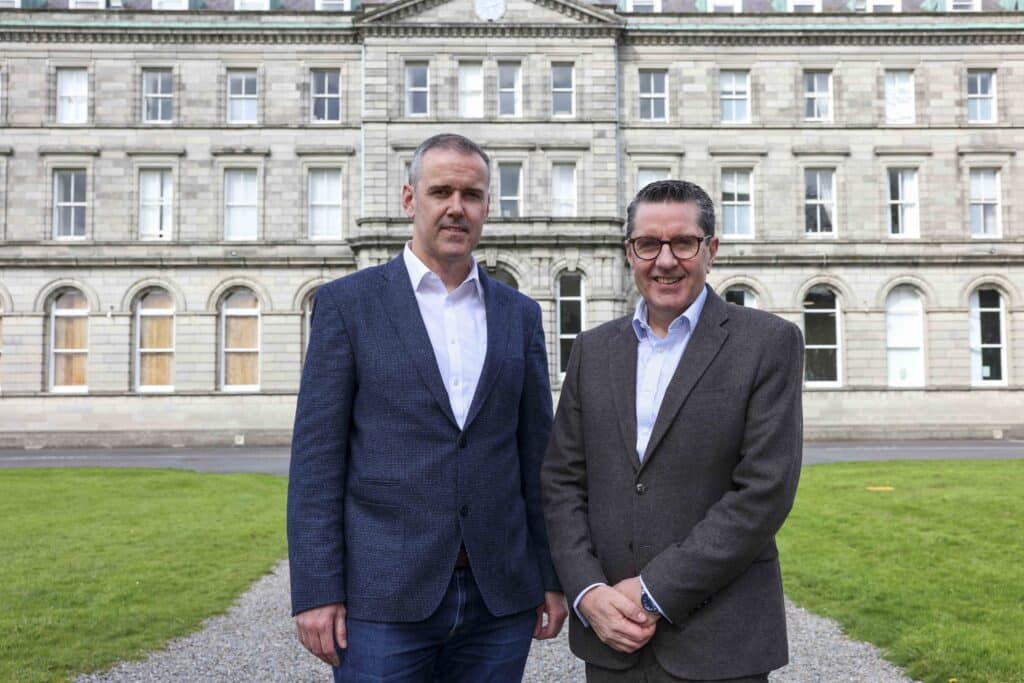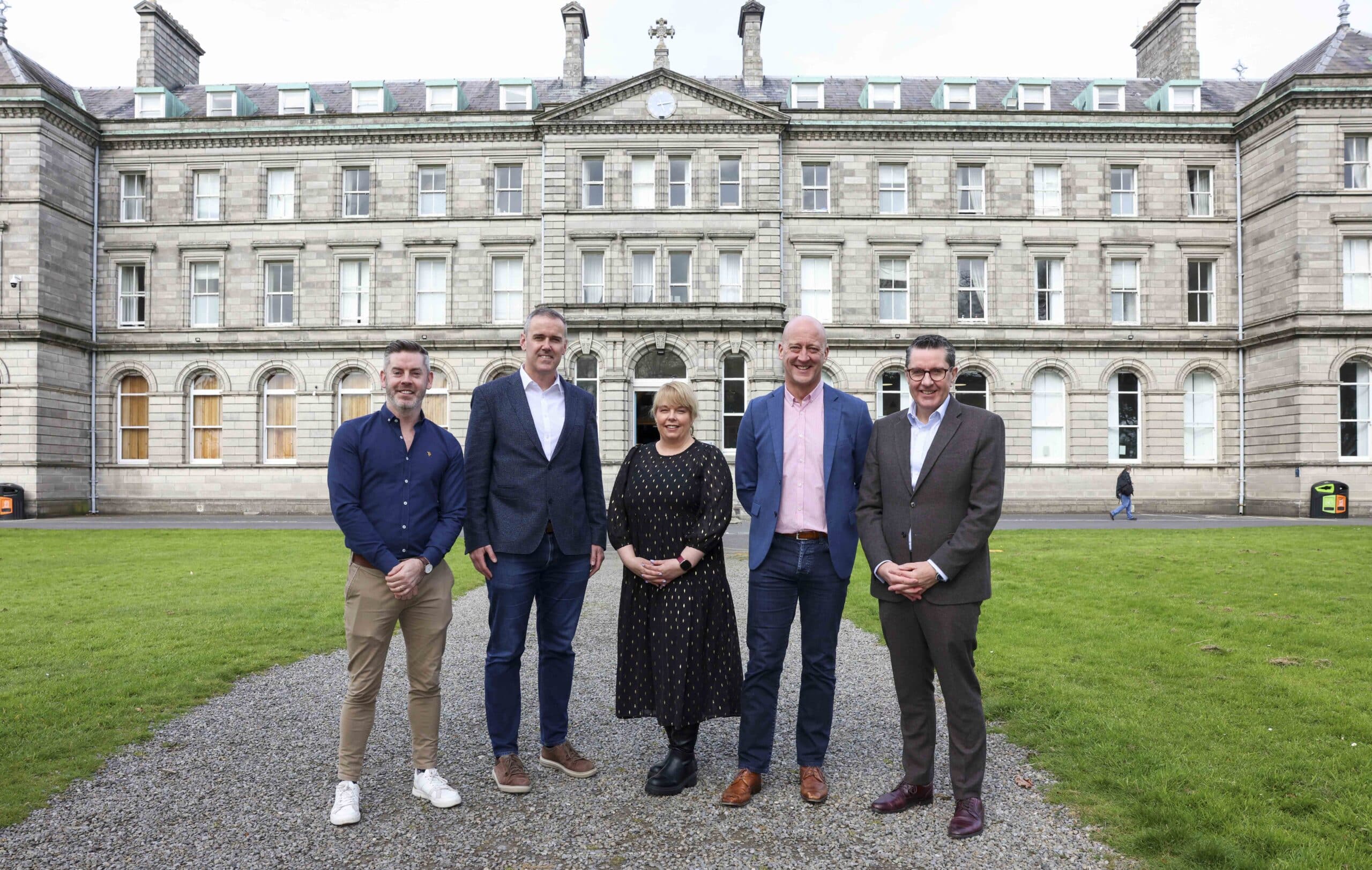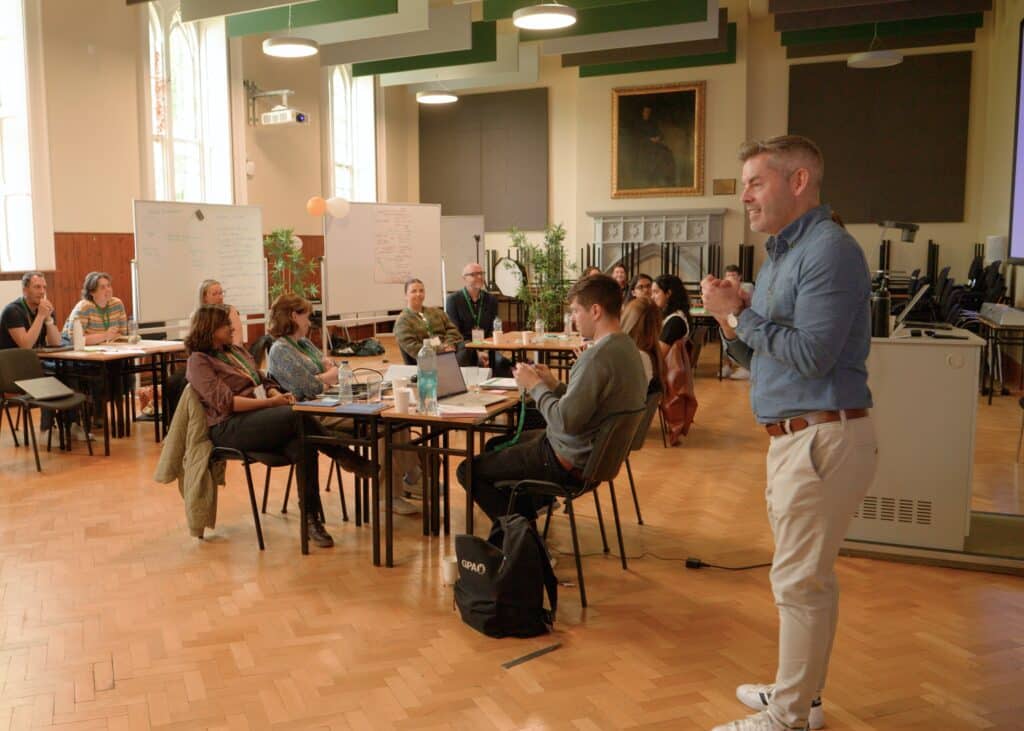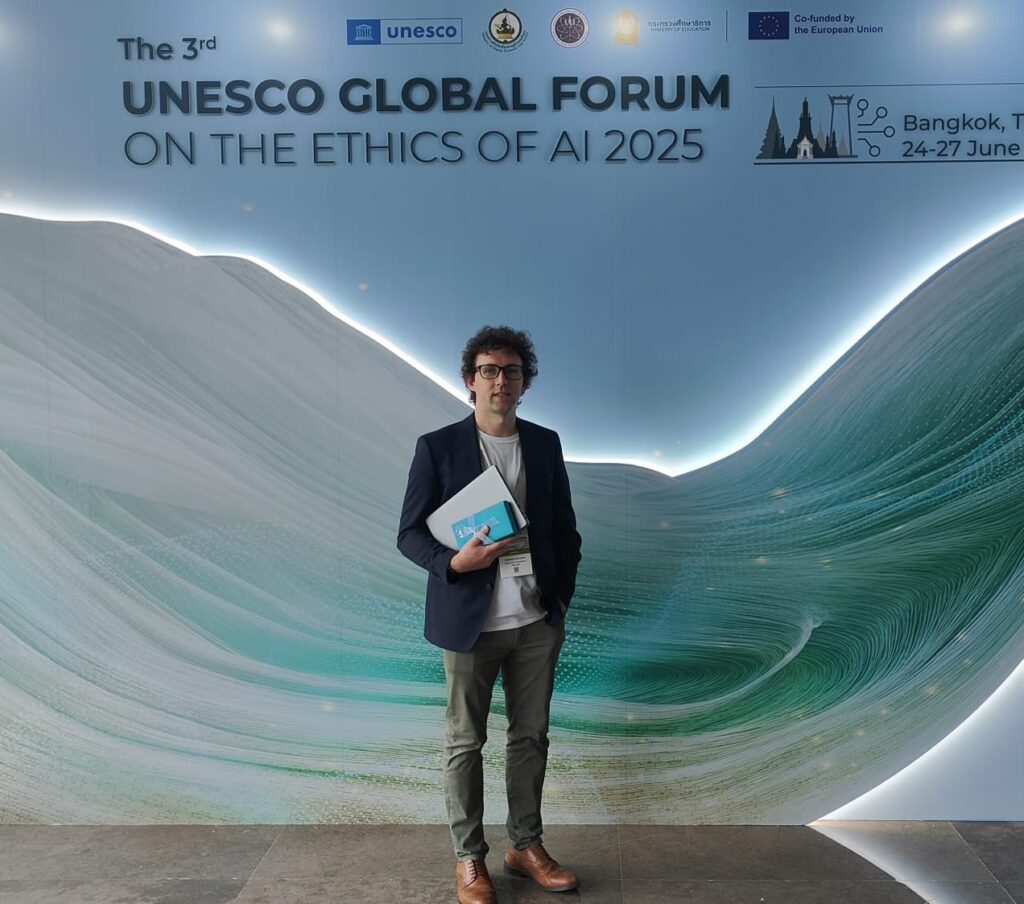Equinix, a global leader in digital infrastructure, has announced a new partnership with Dublin City University’s Anti-Bullying Centre. In this piece, Peter Lantry, Equinix’s Managing Director for Ireland, and Professor James O’Higgins Norman, Director of DCU Anti-Bullying Centre and UNESCO Chair in Bullying and Cyberbullying, discuss their shared goal of a world without bullying.

What was it that first sparked your interest in the DCU Anti-Bullying Centre – and how does their work align with the values of Equinix as a company?
Peter: Firstly, I am passionate about anti-bullying on a personal basis. I experienced bullying myself when I was young, and I think people need to understand that it isn’t something to be ashamed of. I have two children now, and the world they’re growing up in is defined by different types of bullying – it’s online, it’s more insidious, and we need to keep ahead of it.
Secondly, I could immediately see a connection between James’s work here and our values at Equinix. Equinix is aligned with DCU’s Anti Bullying Centre in that both organisations want to make people feel safe, feel a sense of belonging and know that they matter, no matter who they are. In Equinix, we’re solving problems together, and we need to treat each other with respect and care to be able to do that. On a social level, we have Connected Groups, such as Connected Pride, Connected Faith and Connected Black, that bring people together and allow them to express themselves. In our work too, we embed training that prioritises managing bias, being an active ally and being aware of privilege.
How does the support of Equinix help further the impact of DCU Anti-Bullying Centre?
James: I am very excited about working with Equinix and with Peter. This is a company that is very purposeful in terms of how it approaches humanity – both in how it engages with its employees and with wider society. The core aim of DCU is to transform lives and societies, and we want to work with partners who share that vision and commitment. Equinix is clearly such a partner.
The goals of the DCU Anti-Bullying Centre and the UNESCO Chair in Bullying and Cyberbullying are to ensure that bullying is eradicated from schools, societies and workplaces. It may be an ambitious goal, but we believe in it. With the right resources, enterprise and creativity, it is possible.
We cannot resign ourselves to bullying in our institutions. Bullying is a threat to democracy itself. If we accept that some people should have more power than others, that undermines the central idea of democracy: that all should have an equal voice.
Our research is working to develop a more nuanced and deeper understanding of bullying. An individual bullying encounter happens within a context, and within a societal structure, and we need to deepen our understanding of the wider context that allows bullying to continue. This research is vital if we are to eradicate bullying from society.
We’re using our learnings to develop resources and guides that can be used wherever bullying takes place, so this is not ivory tower research. This is research driven by creativity, innovation and enterprise, and we look for partners who can help us as we find new ways of doing things. We could see that Equinix is an innovator that does things ethically, so it made sense for us to work together.
The eradication of bullying is an inspiring goal – Peter, what is your view on the ambitions James has described?
Peter: Equinix has the global reach to support that vision that James has set out. One of our own goals is to ensure that everyone is treated equally and to support talent irrespective of where it comes from – and our work with DCU Anti-Bullying Centre supports that goal. The learnings of this Centre will help Equinix and other companies to think about how we do business, and will inform best practice in our teaching and training.
Speaking to James sheds light on what can be done and what needs to be done, and I’m very interested in the science and research behind this. DCU Anti-Bullying Centre has information, shared tools and effective techniques to tackle bullying, and I would like to see those employed around the world. Equinix is in 72 cities across the globe, and we have connections around the world. Our partnership can start to expand the reach of the Anti-Bullying Centre.
James, how does building a partnership like this make a difference?
James: As a leading European research centre with a global reach, and in the global role of UNESCO Chair on Bullying and Cyberbullying, having a global partner like Equinix can help us to enhance our reach.
I think it’s really important that people in leadership, people like Peter, can name bullying as an issue, both as someone who has experienced bullying and as an ally. I think conversations about bullying are often given other names, like wellness, but it is important that we name the behaviour, and that people aren’t afraid to talk about it and call it out and have an open and honest conversation about why it happens in our society. We need to recognise bullying as a societal process that needs to be addressed. So often, people look the other way because they fear becoming the next target, and people who experience bullying are left on their own.
We need the right teaching and training so that people can recognise bullying behaviours in themselves, and recognise how they respond to bullying behaviours from others. It’s a social process, so how I respond is as important as the actions of the bully and the person being bullied. We need the right people, people like Peter, who are willing to speak and to take action. The whole of society needs to change – and we need allies to call that out.
In addition to partnering with the DCU Anti-Bullying Centre, Equinix also supports the DCU Access to the Workplace programme, which helps to level the playing field for students who we know experience disadvantage in the workplace after graduation. What about this initiative resonates with you, Peter?
Peter: Access to the Workplace is so important for many reasons. Even getting an interview in many companies can be an issue of access and privilege. Yet even from a selfish point of view, companies need to address those barriers in order to get the right talent in. Taking part in the DCU Access to the Workplace programme is a key part of that process for us.
DCU Access to the Workplace supports access for students who may not have the same opportunities, and enables representation where there may be bias. It’s about trying to give a chance to everyone who deserves a chance. It’s a brilliant initiative to widen a company’s access to talent while also ensuring that everyone has access to the opportunities they need.
If you’re interested in supporting and learning more about the DCU Anti-Bullying Centre, please contact DCU Educational Trust today at edtrust@dcu.ie.



